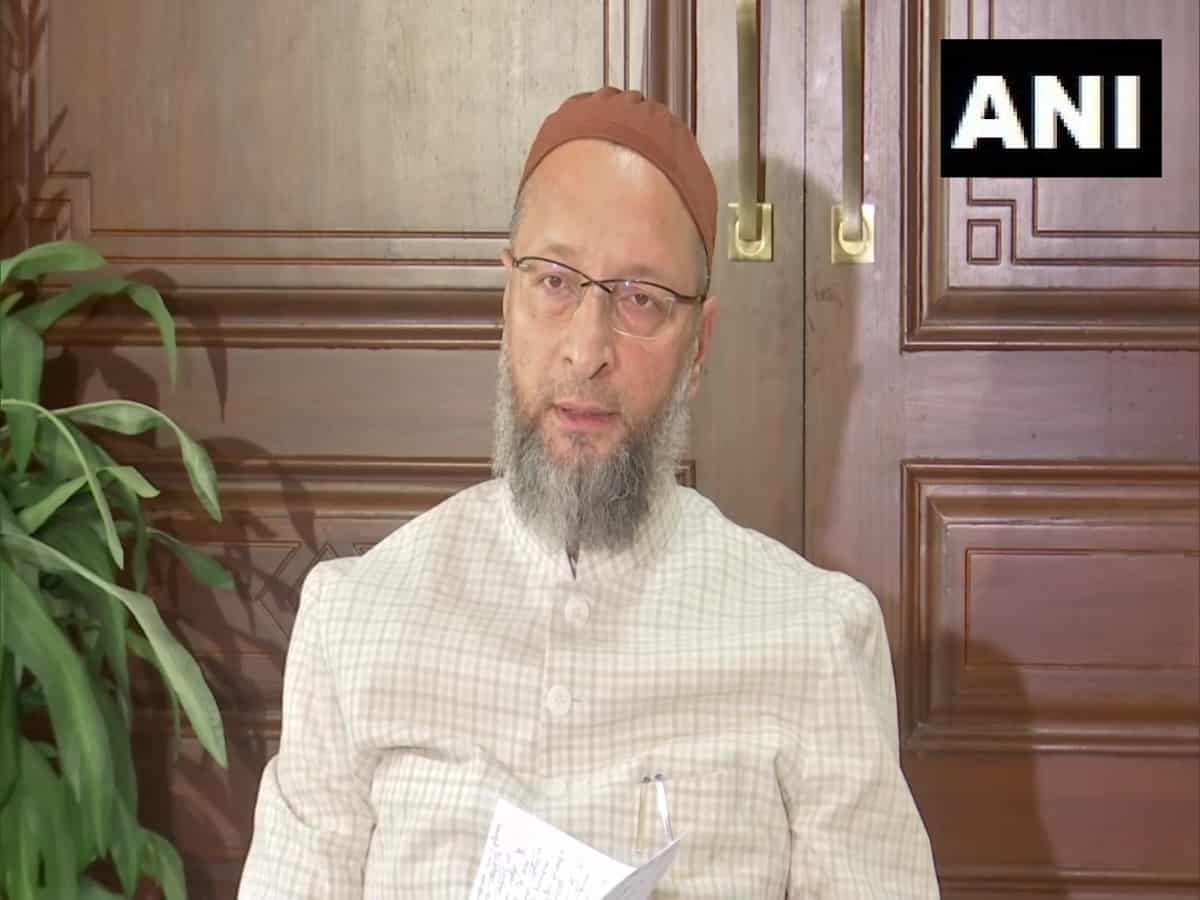
Hyderabad: All India Majlis-e-Ittehadul Muslimeen (AIMIM) chief Asaduddin Owaisi Tuesday reacted to the Ministry of Home Affairs (MHA) notification to empower the district collectors of two more districts in Gujarat to grant citizenship to migrants from the six communities who entered India on valid documents. “You should make this law religion-neutral,” Owaisi advised.
Under the new rule by the Ministry of Home Affairs regarding the Citizenship Amendment Act (CAA), the District Collectors of Mehsana and Anand districts in Gujarat have the right to investigate people and give them citizenship, informed officials.
While speaking to ANI, Asaduddin Owaisi said, “It is already happening that you first give the long-term VISA and then they (minority community of Afghanistan) get citizenship.”
Restricting to comment more as the matter is sub-judice, Asaduddin Owaisi said, “Citizenship Amendment Act has to be linked with National Population Register (NPR) and National Register of Citizens (NRC)”. “Supreme Court is hearing this, let’s see what happens,” he added.
Asked about Bhartiya Janta Party’s decision to constitute a committee to implement the Uniform Civil Code AIMIM Chief said that the UCC committee, which BJP formed before the elections, is to hide the government’s failures and its wrong decisions. “Why Hindu undivided family tax rebate is given only to Hindus. Give it to Muslims also, it is against the fundamental right of the Right to Equality of the constitution,” he added.
This is not the first time the district magistrates or collectors have been delegated such powers by the MHA, similar orders were issued in 2016, 2018 and 2021 empowering District Magistrates in several districts of Gujarat, Chhattisgarh, Rajasthan, Haryana, and Punjab to grant citizenship certificates to migrants from the six communities who entered India on valid documents. Citizenship is a central subject and from time-to-time MHA delegates State officials to exercise such powers.
The Citizenship Amendment Act was passed by Parliament on December 11, 2019, and the Presidential approval came the next day. In January 2020, the Ministry notified that the Act would come into force from January 10, 2020, but it later requested the Parliamentary Committees in the Rajya Sabha and the Lok Sabha to give it some more time to implement rules as the country was going through its worst ever health crisis due to Covid-19 pandemic.
Earlier, the MHA had sought time from the Parliamentary Committees for similar extensions six times. The first extension was granted in June 2020 for notifying CAA rules.
The legislation, which grants citizenship to immigrants belonging to Hindu, Jain, Sikh, Parsi, Christian and Buddhist communities from Pakistan, Bangladesh and Afghanistan, was passed by Parliament amid vehement criticism from the Opposition that pointed out the communal agenda behind the law as it conspicuously left out Muslims.
The legislation has been interpreted in conjunction with repeated assertions by Home Minister Amit Shah -before the Act was passed -that there would be a nationwide exercise to prepare the National Register of Indian Citizens (NRC) to identify illegal immigrants. This was interpreted as a project to disenfranchise Muslims. While nationwide protests were seen following the passage of the law, and multiple states have announced they would not implement the law.
However, the law is yet to be implemented as rules under the CAA are yet to be framed.
As per the Manual on Parliamentary Work, in case the Ministries/Departments are not able to frame the rules within the prescribed period of six months of Presidential approval, they should “seek an extension of time from the Committee on Subordinate Legislation stating reasons for such extension” which cannot be more than three months at a time.
The central government has already made it clear that Indian citizenship to the eligible beneficiaries of the CAA will be given only after rules under the legislation are notified.
The objective of the CAA is to grant Indian citizenship to persecuted minorities like Hindus, Sikhs, Jains, Buddhists, Parsis and Christians from Pakistan, Bangladesh and Afghanistan who had come to India till December 31, 2014. They will not be treated as illegal immigrants and given Indian citizenship.



